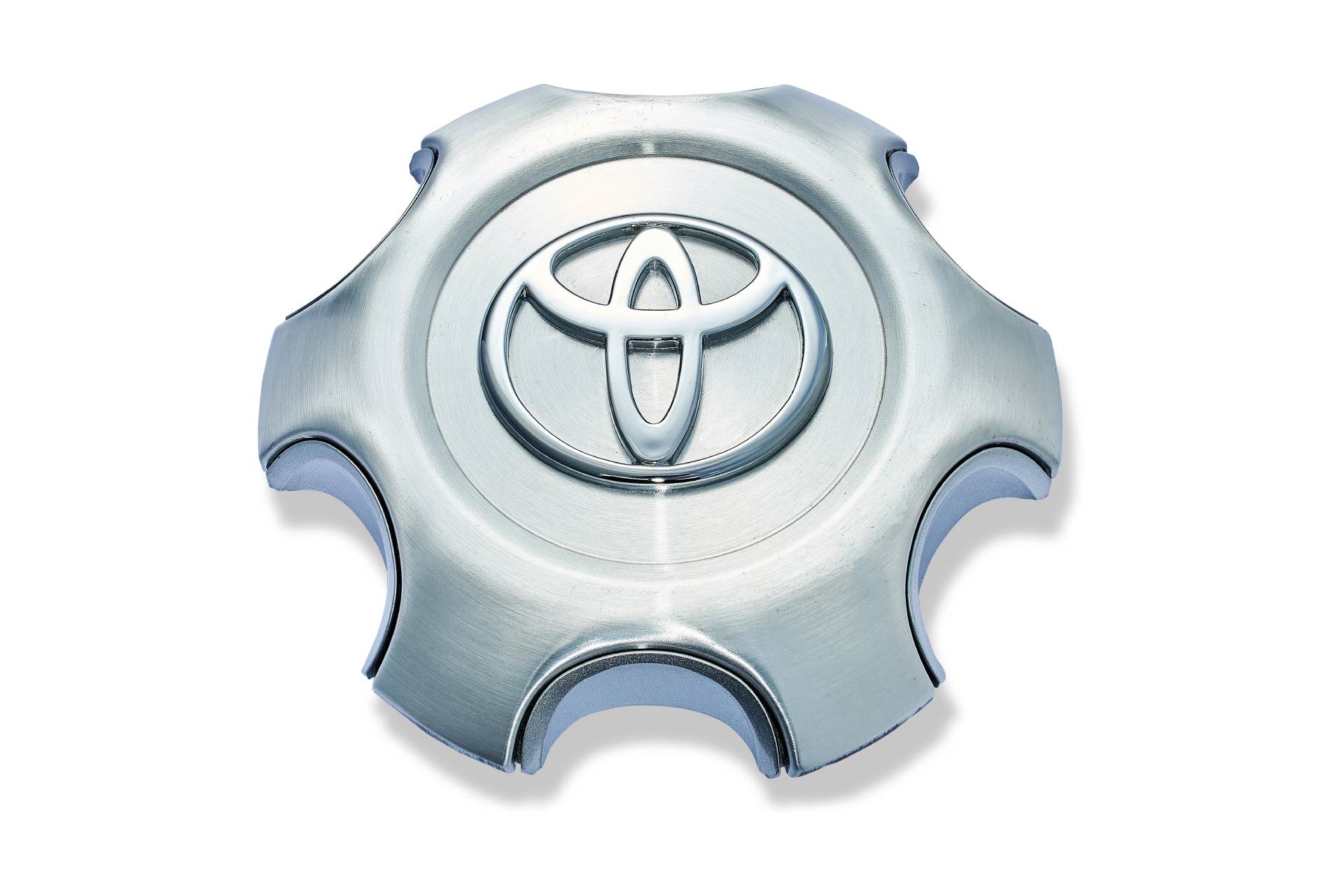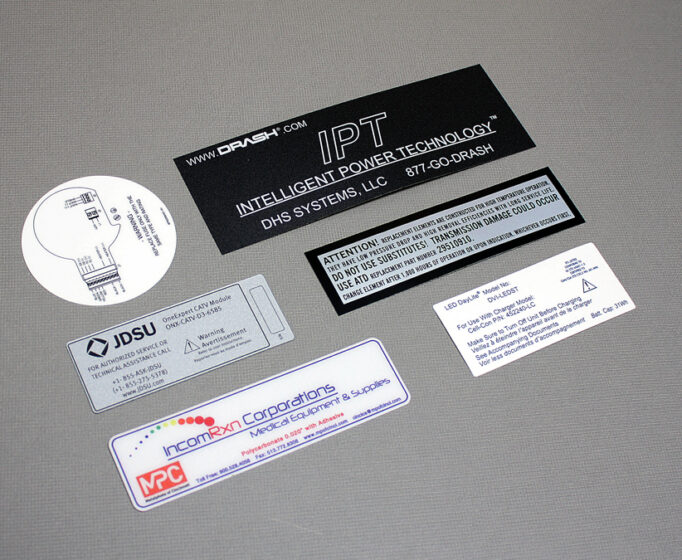10 Surprising Benefits of Using Plastic Nameplates in Your Business
10 Surprising Benefits of Using Plastic Nameplates in Your Business
Blog Article
How Plastic Nameplates Are Made: A Comprehensive Guide to Their Manufacturing Process
The production of plastic nameplates involves a number of accurate steps, beginning with the choice of ideal products to the last complements. Each stage is important, making certain the product satisfies certain requirements for resilience and aesthetic appeals. Different manufacturing methods play a significant duty in crafting these nameplates. Understanding these procedures can clarify the intricacies behind what may look like a basic product. What factors contribute to the high quality and modification of these nameplates?
Recognizing Plastic Products Used for Nameplates

The Style Process: From Concept to Prototype
The design process for plastic nameplates begins with a clear principle that overviews the general development. Designers team up with clients to define the function, design, and details requirements of the nameplate. This preliminary stage includes conceptualizing sessions, laying out ideas, and choosing colors and typefaces that straighten with branding goals.Once the concept is established, developers use computer-aided layout (CAD) software application to create in-depth digital representations. These models enable for visualization and changes before moving on. Comments from stakeholders is essential during this phase, as it helps fine-tune the style to meet expectations.After completing the electronic model, a physical design might be created, typically via techniques like 3D printing. This concrete depiction makes it possible for further examination of appearances and functionality. On the whole, the design process is an essential action that lays the structure for the reliable production of top quality plastic nameplates.
Cutting and Shaping the Plastic
In the cutting and shaping stage of plastic nameplate production, the selection of materials plays an important role in establishing the final item's top quality and longevity (Plastic Nameplates). Numerous accuracy cutting methods, such as laser cutting and CNC machining, assurance that the plastic is shaped with accuracy and consistency. This mix of careful product selection and advanced cutting approaches is crucial for generating top quality nameplates

Product Choice Process
Choosing the appropriate product is important for creating premium plastic nameplates. Various types of plastics are offered, each offering distinctive advantages and characteristics. Common options consist of acrylic, polycarbonate, and PVC. Acrylic is favored for its quality and UV resistance, making it excellent for exterior applications. Polycarbonate, recognized for its longevity and effect resistance, is ideal for atmospheres that need enhanced protection. PVC is frequently selected for its cost-effectiveness and versatility in style. The option procedure likewise takes into consideration aspects such as surface, shade, and density surface, which can greatly affect the last appearance and functionality of the nameplate. Ultimately, the chosen material must line up with the intended use and visual objectives of the plastic nameplate.
Accuracy Cutting Methods
While picking the proper product lays the foundation, precision cutting methods play an essential role in shaping the plastic nameplates into their last forms. Various methods, including laser cutting, CNC milling, and pass away cutting, are utilized to attain accuracy and consistency. Laser reducing uses focused light to produce complex layouts and tidy edges, ideal for intricate patterns. CNC milling provides flexibility by getting rid of excess material with accuracy, suiting different densities and forms. Die cutting, on the other hand, permits for mass manufacturing of uniform items, improving efficiency. Each technique is picked based upon the style specs and the desired coating, ensuring that the final product fulfills quality standards and client assumptions while keeping durability and visual appeal.
Printing Methods for Modification
Exactly how can producers attain precise and vibrant layouts on plastic nameplates? The answer hinges on numerous printing strategies tailored for modification. Digital printing has gained appeal as a result of its ability to generate intricate layouts and high-resolution photos straight onto plastic surface areas. This approach permits fast turn-around times and marginal configuration costs, making it excellent for short runs and personalized orders.Screen printing continues to be another widely used strategy, especially for bigger quantities. It involves creating a pattern and using layers of ink, leading to abundant shades and resilience. UV printing, which makes use of ultraviolet light to treat the ink, is also effective, giving exceptional attachment and resistance to fading.Additionally, pad printing offers versatility for irregularly shaped nameplates, enabling for in-depth styles on tough surface areas. These printing techniques allow suppliers to meet diverse customer needs while making sure top quality and longevity in their plastic nameplate items.
Surface Area Therapies and Finishing Options

Quality Assurance Measures in Production
Guaranteeing the greatest standards of quality assurance during the production of plastic nameplates is essential for preserving product stability and client contentment. Makers implement rigorous examination methods at different phases of the production procedure. Raw products undertake thorough screening to validate they fulfill specs for sturdiness and color uniformity. Throughout the molding stage, automated systems monitor criteria such as temperature and stress to stop defects.In addition, aesthetic evaluations are carried out to recognize any type of surface imperfections or imbalances. When the nameplates are produced, they go you could check here through useful tests, including bond examinations for printed components and cardiovascular test for resilience. Quality assurance teams frequently use statistical sampling approaches to analyze batches, ensuring that any kind of variances from requirements are quickly resolved. This comprehensive approach not just boosts item quality however additionally cultivates count on with customers, attesting the supplier's dedication to quality in every nameplate generated.
Product packaging and Distribution of Finished Nameplates
The packaging and distribution of finished plastic nameplates are important steps in ensuring they reach customers in excellent condition. Various product packaging products are selected to protect the nameplates during transportation, while shipping methods are thoroughly picked based upon efficiency and cost-effectiveness. Additionally, reliable storage options are carried out to maintain high quality till the nameplates are supplied.
Packaging Materials Used
Choosing appropriate product packaging materials is important to ensure their protection throughout transit when distributing completed plastic nameplates. Frequently used materials consist of bubble cover, foam cushioning, and cardboard boxes, all made to cushion the nameplates versus influences and shocks. Bubble wrap provides an adaptable obstacle, while foam padding warranties that nameplates continue to be securely in position, minimizing the risk of scrapes or damage. Furthermore, strong cardboard boxes are used to include the nameplates, using structural support and protection from exterior elements. Labels may be applied to suggest dealing with guidelines or vulnerable contents, even more enhancing safety and security throughout transportation. In general, making use of high-quality product packaging products significantly adds to the integrity and presentation of the finished plastic nameplates upon arrival at their destination.
Shipping Approaches Employed
Efficient distribution of ended up plastic nameplates relies upon different delivery methods that assure protected and prompt shipment. Business typically make use of courier solutions, freight delivery, and postal services, relying on the size, weight, and location of the plans. For regional deliveries, courier solutions supply rapid transit, making certain nameplates reach customers rapidly. For larger orders, freight shipping is liked, using trucks or shipping containers to deliver mass amounts successfully. Post offices act as an economical alternative for smaller shipments, particularly for domestic deliveries. All shipping approaches prioritize protective packaging to stop damage throughout transit. Tracking systems are also used to keep track of deliveries, giving clients with real-time updates and reassurance concerning the standing of their orders.
Storage Space Solutions Implemented

Frequently Asked Concerns
What Kinds Of Organizations Typically Utilize Plastic Nameplates?
Plastic nameplates are commonly made use of by numerous businesses, including offices, colleges, factories, and medical facilities. These nameplates offer important functions such as identification, details display screen, and branding, adding to organizational efficiency and specialist appearance across diverse atmospheres.
For how long Does the Entire Production Refine Take?
The manufacturing process duration differs based upon intricacy and quantity, generally ranging from a few days to numerous weeks. Elements affecting this timeline consist of layout authorization, material schedule, and production techniques employed by the company.
Can Plastic Nameplates Be Recycled After Use?
Plastic nameplates can be recycled, supplied they are made from recyclable products. However, the schedule of recycling programs and neighborhood regulations may influence their recyclability. Proper disposal practices are important to assure effective recycling.
What Are the Environmental Effects of Plastic Nameplate Production?
The ecological effects of plastic nameplate manufacturing consist of carbon emissions, resource exhaustion, and air pollution from making procedures. Plastic Nameplates. Furthermore, incorrect disposal adds to plastic waste, negatively affecting communities and wildlife, highlighting the requirement for sustainable practices
Exist Any Kind Of Safety And Security Interest In Plastic Nameplates?
Safety and security worries pertaining to plastic nameplates largely include prospective chemical direct exposure throughout manufacturing and the danger of materials weakening over time, which might cause harmful compounds being launched, impacting both human health and wellness and the environment. While various materials can be made use of for nameplates, plastic remains a preferred option due to its convenience and toughness. In the cutting and shaping stage of plastic nameplate production, the choice of materials plays a vital role in establishing the final product's quality and durability. Choosing the right material is important for creating top quality plastic nameplates. While choosing the proper product lays the groundwork, accuracy cutting methods play a vital function in forming the plastic nameplates into their last kinds. When distributing ended up plastic nameplates, choosing ideal packaging products is crucial to ensure their defense during transit.
Report this page